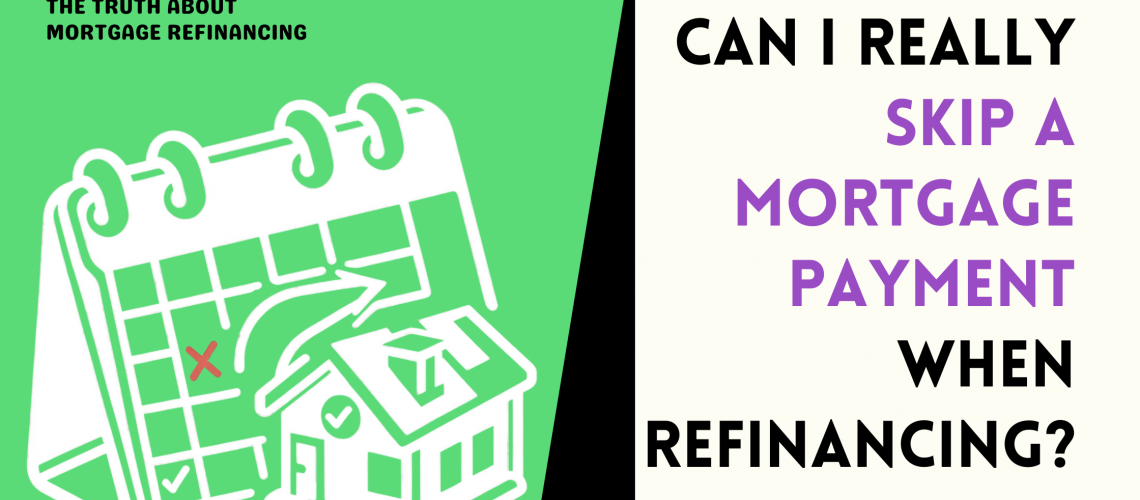Have you ever heard that you can skip a mortgage payment when refinancing? This is a common question we receive here at Federal Hill Mortgage. However, it’s important to debunk this common myth – skipping a payment does not mean it’s waived, but rather added to your loan balance. This understanding is crucial as it directly affects your financial future and the principal balance of your loan. Join us as we explore the true implications of refinancing, ensuring you make informed decisions with no hidden surprises.
Debunking the Myth of Skipping Mortgage Payments in Refinancing
Did you know that the idea of skipping a mortgage payment during refinancing is a widespread misconception? When you refinance, you’re essentially replacing your current mortgage, perhaps a 30-year mortgage, with a new one, possibly for a lower interest rate or a different loan term. This process can give the illusion of skipping a payment due to its timing with your monthly mortgage payment cycle. However, what actually happens is more complex. We at Federal Hill Mortgage are here to unveil the truth behind this myth, ensuring you understand the nuances and implications for your financial journey, including how your loan amount and interest rates are affected.
How Refinancing Affects Payments
Understanding how your payments change during refinancing is key. When you refinance, the timing of your new mortgage’s closing is crucial. For instance, if your refinance loan closes in mid-June, your July payment, which typically covers June’s interest, is adjusted. At closing, you cover the interest that accrues in June, giving the impression of skipping a payment in July. At Federal Hill Mortgage, we advocate a transparent approach, recommending you make this payment during closing. This strategy prevents any increase in your loan balance, safeguarding your financial future while keeping you fully informed every step of the way.
Interest Accrual and Mortgage Payments
Mortgage Forbearance vs. Refinancing
Final Thoughts: Making Informed Decisions with Federal Hill Mortgage
As we’ve explored, refinancing your mortgage with Federal Hill Mortgage doesn’t mean you can literally skip payments. It’s about understanding how your payment schedule, principal balance, and loan options are affected. We guide you through the refinancing process, from the moment your loan closes to when your first payment is due, ensuring you make decisions that align with your long-term financial health.
Ready to Refinance? Let's Talk
If you're considering refinancing in MD, DE, PA, VA, DC, NC, or TX, connect with us at Federal Hill Mortgage. Our experts are here to provide tailored advice, helping you navigate your refinancing journey with confidence. Contact us today, and take the first step towards a smarter financial future.
Start My Refinance
